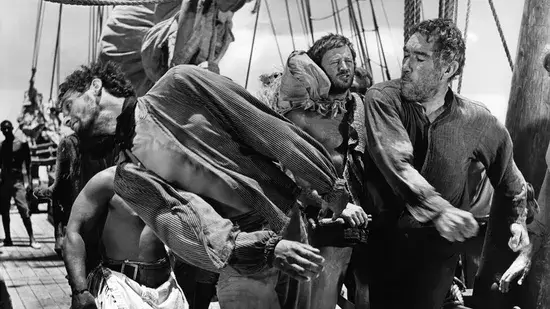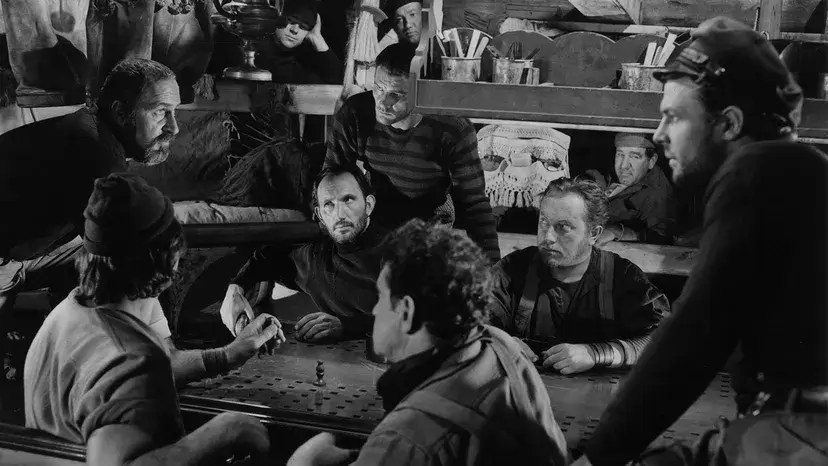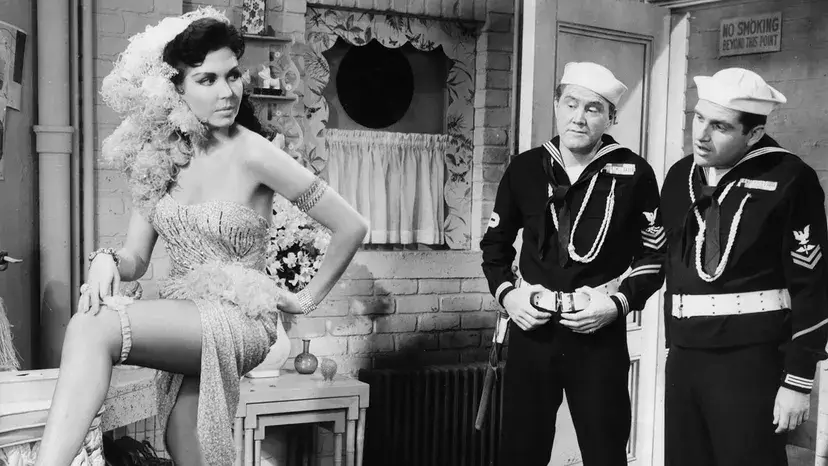The salty story of swearing like a sailor

There is good reason to believe that sailors have always used salty language on the high seas. At least that was the impression of the Puritan preacher Cotton Mather, who wrote in a 1699 sermon: “It has been an observation, older than the days of Plato, that the sea is a school of vice... It is not the sin of swearing and profane insults, have become very notorious among our sailors?” Even the adjective “salty,” meaning coarse language, originated in the late 1800s as a reference to sailors’ “colorful” culture and vocabulary. So what exactly about nautical life turned good Christian boys into foul-mouthed sailors and popularized the notion of “swearing like a sailor”?
Content
- A Dangerous Brotherhood
- 'Damn' was a serious swear word
- What did you say about my mother?
- 'Cursing with gusto'
A Dangerous Brotherhood
From the late 17th century to the 19th century, there was no profession more dangerous and technically demanding than that of crew on a large sailing ship, says Marc Nucup, public historian at The Mariners' Museum and Park in Newport News, Virginia. Every aspect of navigation required coordinated teamwork, and a “weak link” in the crew could cause serious injury or death. Earning the trust and respect of your crew was essential, which meant convincing them that you were part of the island brotherhood of sailors.

“Because this was such a technical skill where the risk of dying or being injured was always present, you were either a sailor or you weren't a sailor,” says Nucup, “speaking like a sailor was a great mark to show that you belonged to that group. .”
Part of talking like a sailor was being familiar with all the specialized shipboard jargon – from scuppers to hearsay – which in itself could sound like a foreign language. But proficiency with foul language (at least by 18th-century standards) was also a sure sign that you were an experienced and trustworthy hand.
“Swearing like a sailor was a relatable way to make sure you were part of the group,” says Nucup. “Just as there were songs and songs that all sailors knew, stories they liked to tell and the way they dressed in contrast to civilians on land”.
'Damn' was a serious swear word
To modern ears, the word “cursed” barely registers as bad language, but in the highly religious culture of 18th and 19th century America, “cursed” had a serious impact. As historian Paul Gilje explained in his excellent book, “To Swear Like a Sailor: Maritime Culture in America 1750-1850”, misuse of the word “accursed” could violate two different Christian taboos: 1) taking the name of the Lord in will (as in “Damn you!”) or 2) put themselves on the same level as God, cursing everything from an ill wind to a drunken captain.
Most sailors were raised in religious homes and fully understood that using the word “cursed” was a sinful business, but that was also part of the appeal. Gaining acceptance into the brotherhood of sailors often meant actively rejecting the mores of mainstream society, at least while aboard ship. In his book, Gilje quotes a repentant sailor at a prayer meeting in New York: “I profaned the name of God without any remorse of conscience… I often called upon God to condemn my body and my soul, yards and sails, rigging and blocks. , all below and above, the ship and my companions.”
If “damn” was bad enough, then what would be considered a truly vile example of “swearing like a sailor”?
There are frustratingly few mentions of specific swear words in the logbooks and sailors' diaries of the time, but Gilje encountered a fellow on a whaling ship in 1849 who described his captain as using "the worst and most profane language I ever heard from mortals." ”. lips." If you're expecting "F-bombs" and other censored swear words, you might be surprised to learn that one of the nastiest insults a 19th-century sailor could utter was calling another man a "fucking son of a bitch."
What did you say about my mother?
In his book, Gilje found several accounts of men on board a ship who almost killed themselves because they were called this phrase. Captains whipped and beat men for less, and riots were plotted based on seemingly harmless words. But, as Gilje explains, back then there was nothing harmless about calling someone’s mother a “bitch.”

In “A Classical Dictionary of the Vulgar Tongue” published in 1785, the author defines “bitch” as “a bitch or bitch” and also “the most offensive denomination that can be given to an English woman, even more provocative than that of prostitute." A prostitute had sex with men for money, but a “slut,” according to the 18th-century dictionary, was a “woman whose animal sexual instincts compelled her to confront any and all available men.”
To call a woman a “slut” in the 18th and 19th centuries was to consider her less than human and literally bestial. And calling a man a “son of a bitch” was an unforgivable offense, considering the pedestals upon which young sailors placed their angel mothers.
“There is a certain sentimentality, especially among younger men,” says Nucup. “Some may have had boyfriends or wives on land, but almost everyone had a mother at home and insulting your mother was a big problem.”
In fact, “son of a bitch” may have been the most potent “fighting word” in the English language, on and off the water. To be clear, Gilje references the Boston Massacre, the infamous incident in which British soldiers fired into a crowd of rioting civilians in Boston in 1770, killing five American colonists in the run-up to the Revolutionary War.
When angry Bostonians first clashed with British soldiers, a young man pointed at a soldier and shouted, “This is the son of a bitch who knocked me down.” This would certainly have made the soldier's blood boil. But the insults and provocations didn't stop there. According to another account, another person in the crowd challenged the British to shoot using the most profane language they could muster: “Damn you scoundrels; shoot. Don't you dare, shoot. Shoot and be damned.”
'Cursing with gusto'
Gilje says that over time sailors became increasingly proud of their salty reputation, and although insults like “son of a bitch” became widespread among 19th-century Americans of all professions, sailors “embraced the curse with a distinct taste” and elevated it to an “art form”. The ability to swear freely was romanticized as one of the freedoms of life at sea and “swearing like a sailor” came to represent a certain type of virile maritime lifestyle.
Do modern sailors still deserve a reputation for prolific and creative swearing? We contacted Dave Winkler, a retired Navy Reserve commander and now a historian at the Naval Historical Foundation, who told the story of a crewman who practically jumped overboard when the new captain issued a “no swearing” order. That said, Winkler wrote in an email: “I wouldn’t say that sailors have a special command over brown language. I suspect it is widespread in all industrial environments. Then there are the Marine Corps drill instructors!”
Now that's cool
“Spinning a thread” is sailor language used to tell a story and refers to the nautical practice of twisting fibers to form a thick rope. The metaphor “fits the way sailors told their stories,” writes Gilje, “offering small bits of information that came together and formed a larger narrative.”





